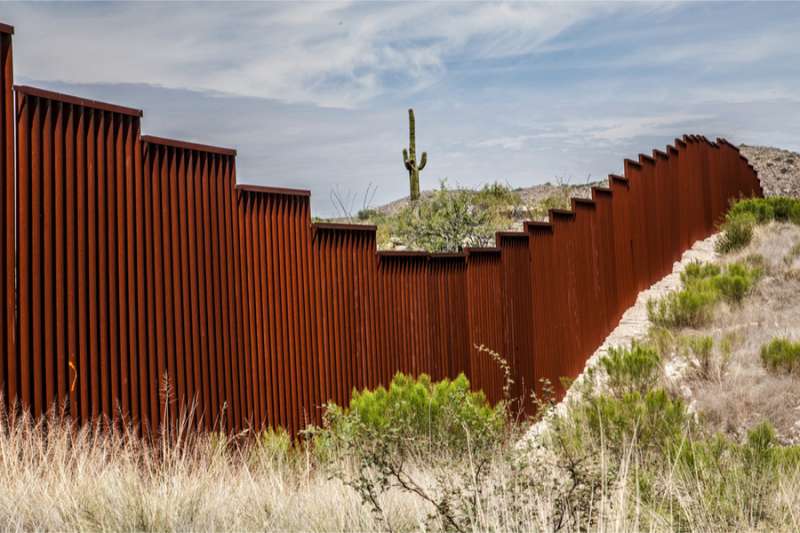A congressional budget compromise that would fund the construction of physical barriers along parts of the southern border of the United States includes an explicit provision that excludes La Lomita Park from the funding. The park is the site of a chapel at the center of a court case between the Diocese of Brownsville and the government.
The Consolidated Appropriations Act, the text of which was released Feb. 13, would provide $1.3 billion in funding for the construction of barriers along the U.S.-Mexico border but contains a list of five specific places where these funds cannot be used to build a wall, the third of which is the site of La Lomita Chapel.
According to section 231 of the bill, “None of the funds made available by this Act or prior Acts are available for the construction of pedestrian fencing [...] (3) within La Lomita Historical park.”
The bill is slated to be considered by the House of Representatives on February 14.
La Lomita Park in Mission, TX, is home to La Lomita Chapel. Constructed in 1865 by missionaries, the chapel is located close to the U.S. border with Mexico. While there are no regularly scheduled religious services held at the chapel, it is used for weddings, funerals, and other cultural events.
The chapel is maintained partly by the city of Mission, as it is located in a park, and is affiliated with Our Lady of Guadalupe Catholic Church, located a 10-minute drive away.
If the border wall were to be built as planned, the chapel would be on the southern side of the wall, limiting parishioner access to it from the north.
The Diocese of Brownsville, which includes Mission, filed suit against the federal government arguing that the construction of a border wall restricting access to the chapel would be a violation of religious freedom.
Last week, a District Court decision cleared the way for the land to be surveyed.
On Feb. 6, Judge Randy Crane ruled that allowing the federal government to survey the land surrounding the chapel to determine if a wall could be built would not interfere with the exercise of religious freedom rights.
An attorney representing the diocese told CNA that she was pleased La Lomita Park was included in the compromise bill, and that she hoped the bill would be passed by Congress.
“We are of course glad that the authors of this bill have recognized the significance of La Lomita Chapel to the Catholic community in the Rio Grande Valley, and we hope that Congress and the president pass the spending bill with these protections for La Lomita and other local landmarks,” Amy Marshak, an attorney at Georgetown University Law Center’s Institute for Constitutional Advocacy and Protection (ICAP), told CNA.
ICAP is representing the Diocese of Brownsville in its suit against the government.
It is not yet clear if the compromise bill will be accepted by President Donald Trump, who had requested $5.7 billion to build a wall along parts of the U.S. border with Mexico.
Trump indicated Thursday that he was pleased with parts of the compromise, and congressional leaders have expressed cautious optimism that the president could sign the bill and avoid another partial government shutdown.
On Thursday afternoon, the president tweeted that he was reviewing the bill with his staff.
In addition to funding the border wall, the bill also includes funds for international aid to Central America, and a reduction in the number of beds available to detain undocumented immigrants away from the border.
Offices for the Diocese of Brownsville were closed on Thursday for an all-staff retreat.
If passed, the Consolidated Appropriations Act would also prevent funds from going to construction of a border barrier within the National Butterfly Center or within the Santa Ana Wildlife Refuge.

